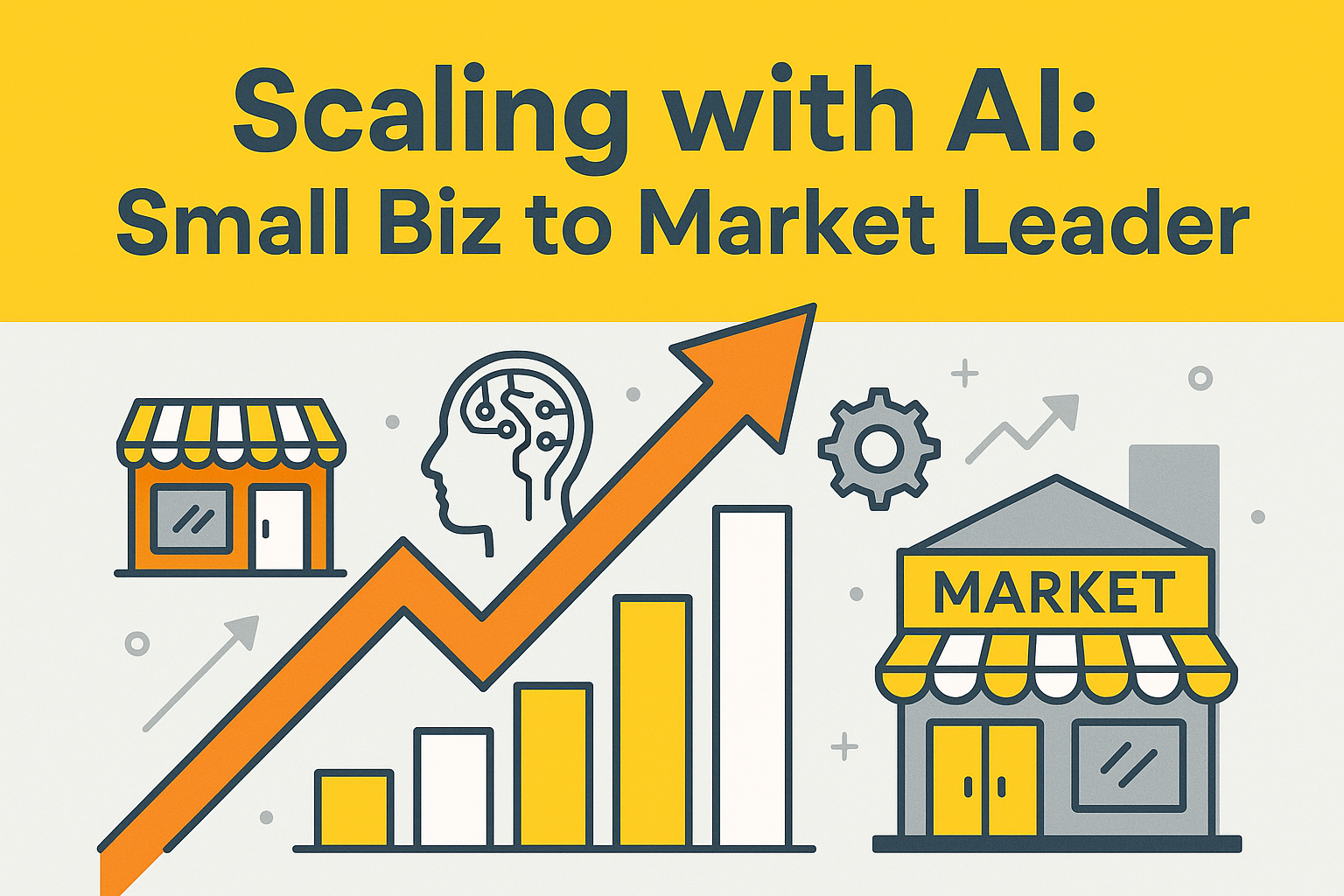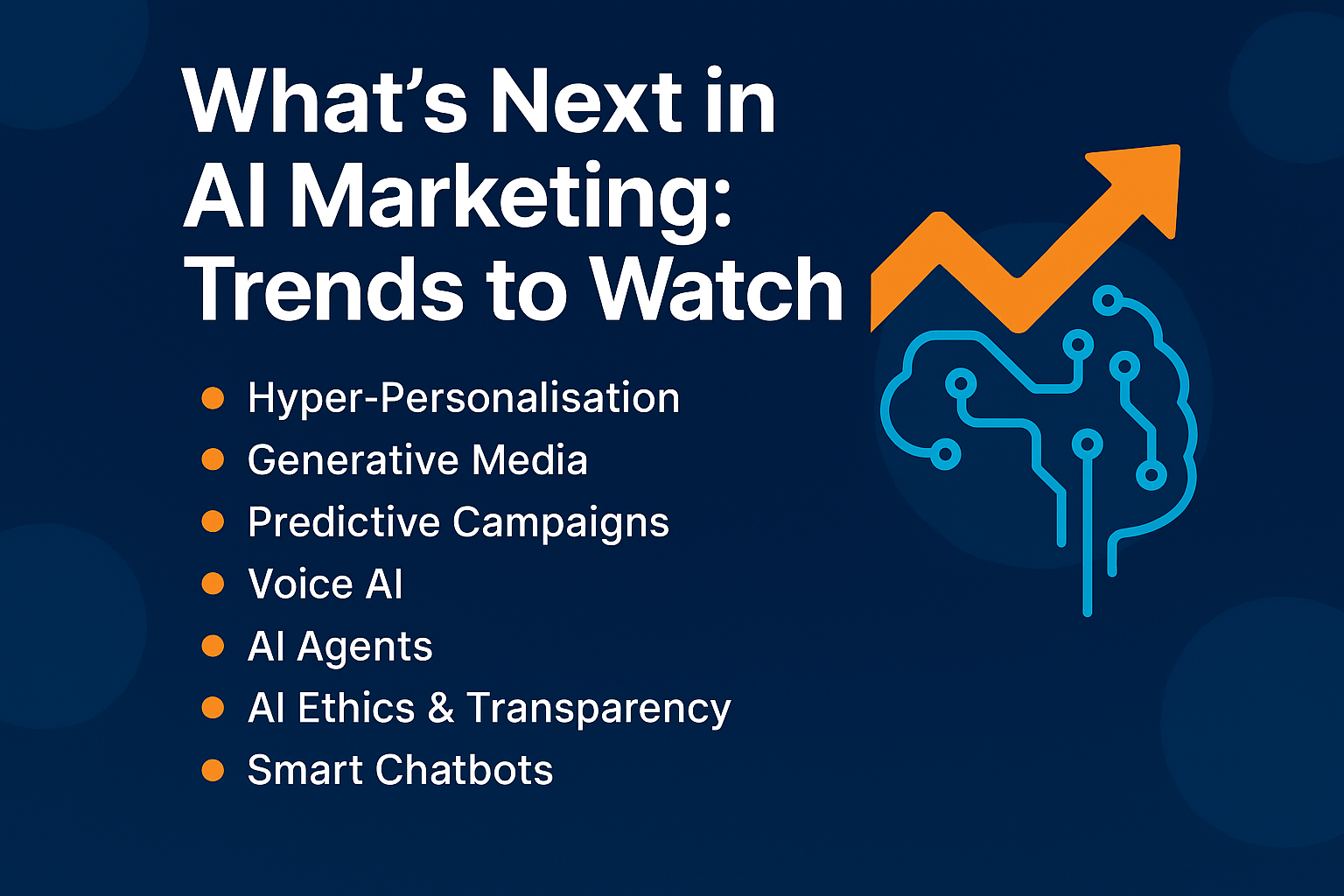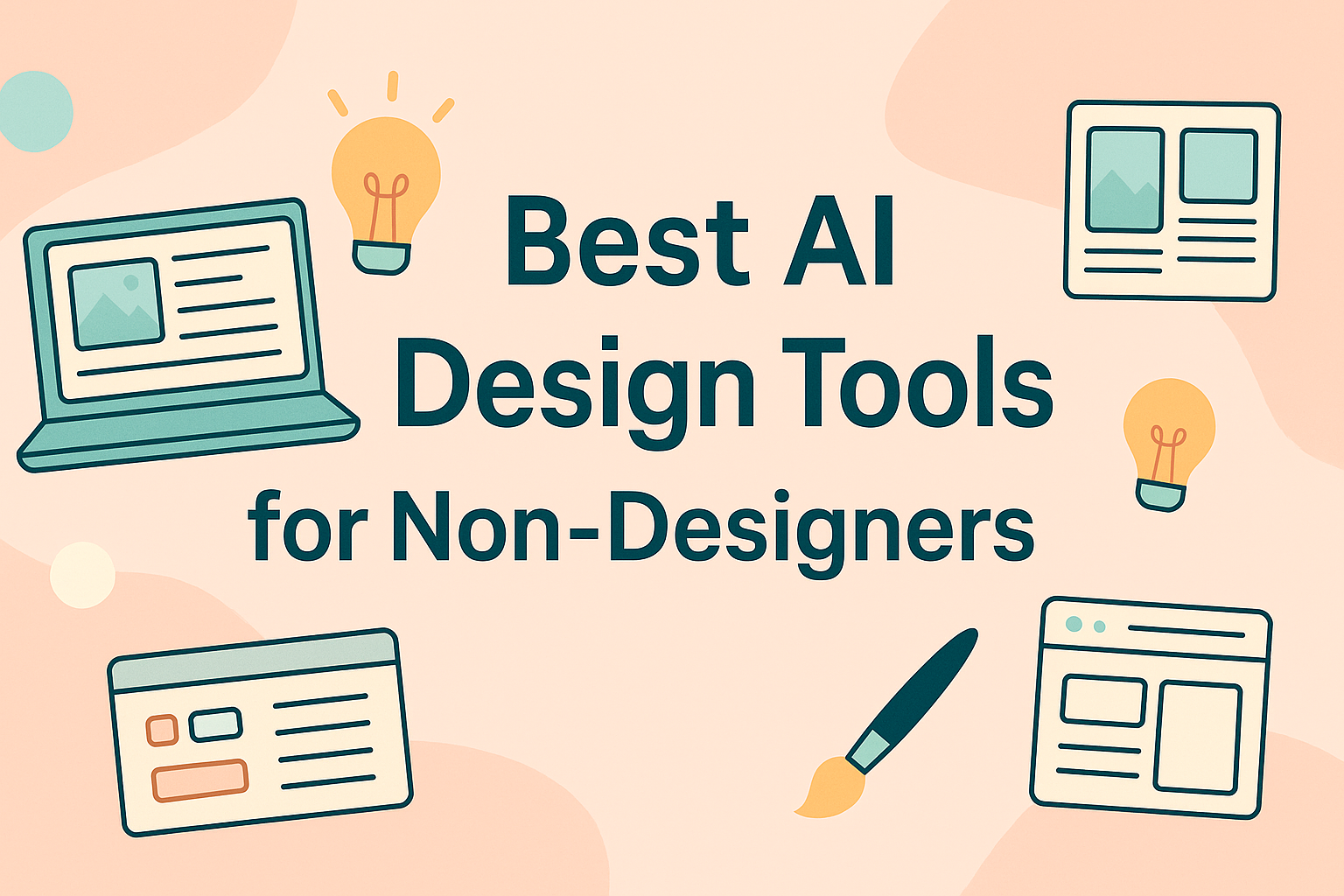In today’s competitive market, small businesses need every edge they can get. Artificial Intelligence (AI) is no longer just for tech giants—it’s the growth engine smart small business owners are using to become industry leaders. As someone who’s spent over 15 years in digital marketing, I’ve seen firsthand how AI can power that transformation.
What Does Scaling Mean for Small Businesses?
Scaling means growing in a way that’s sustainable and smart. It’s not just about more customers—it’s about delivering consistently excellent service while expanding operations. That’s where AI comes in.
Key Areas Where AI Can Help You Scale
1. Customer Support Automation
– Use tools like Intercom or Tidio to offer 24/7 service.
– AI-powered chatbots can answer FAQs, book appointments, and even route complex queries to human agents.
2. Marketing Personalisation at Scale
– Tools like HubSpot and Smartwriter AI allow you to personalise emails, landing pages, and offers based on behaviour, not guesswork.
– This increases conversions without needing a huge marketing team.
3. Predictive Analytics for Smarter Decisions
– Platforms like Pecan.ai and MonkeyLearn help you analyse customer behaviour and forecast sales trends.
– You’re no longer reacting—you’re predicting.
4. Content Creation and Campaign Management
– Jasper, Copy.ai, and Surfer AI can create high-quality content fast.
– Combine these with scheduling platforms to run multi-channel campaigns without burnout.
5. Workflow Automation
– Zapier, Make (formerly Integromat), and Notion AI reduce manual tasks.
– Automate invoices, follow-ups, onboarding, and internal workflows.
Case Study: How a 3-Person Team Grew into a 7-Figure Brand
A wellness brand I consulted for used AI for customer service, email marketing, and content production. Within 12 months:
– Web traffic tripled
– Average order value increased by 35%
– They hired 2 more team members—but grew revenue by 500%
The founder said: “AI gave us the scale of a 20-person team while staying agile and lean.”
How to Get Started (Without Getting Overwhelmed)
1. Start with one area—pick the part of your business that drains the most time.
2. Choose the right tool—go for software that’s affordable, integrates well, and has good support.
3. Measure the ROI—track time saved, leads generated, or revenue uplift.
4. Build gradually—don’t automate everything overnight. Learn, adjust, and optimise.
Final Thoughts
Scaling with AI isn’t about replacing people—it’s about empowering them. AI gives small businesses the ability to compete with the big players without losing what makes them special.
Focus on the areas where AI can give you back time, clarity, or reach. When used right, it doesn’t just add capacity—it transforms what’s possible.
You don’t need to be technical. You need to be strategic.

Posted inStrategy & ROI

